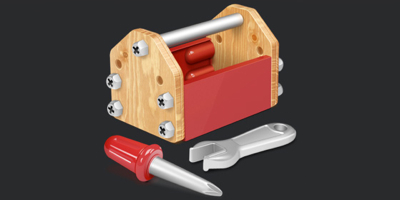"I'll commit to 70% output in 9 months."
There. I just committed to launch a new-to-the-world product on time.
It was one of my first acts as a newly transferred operations manager. I was watching an experimental process that could barely hit 20% output. The launch had already been delayed 1 or 2 times, and there was talk we would need a major redesign. My industry experience was somewhere between 6-8 weeks, and on my word, the business was going to move forward on its launch date.
Tom, my brand manager smiled. "I like your confidence."
I was a newbie on the newest technology and my last assignment was in HR. What did I know about the line that no one else did?
I could see the problem wasn't technical.
I didn't need to be an expert on the technology: I had the tools to assess the start up process, the technology, and the operations.
I didn't see a new-to-the-world line; I saw a familiar technology being repurposed for the beverage industry. I didn't see a problem with the technology, I saw a problem managing technology and poorly organized teams. I knew I had strong leaders and motivated people. This was a case of all the right ingredients mixed incorrectly.
I needed my leaders to see there was nothing wrong with the technology, and that the launch date was possible with different processes and systems.
The first thing I did was send the department leaders on a benchmarking trip to review technology management, operations management, and team management.
As soon as my department leaders saw similar technology running well, everything clicked. They asked to benchmark tools and approaches, not the technical design. We returned home confident that we would hit the launch date. After 9 months of dedicated effort, the line started up on time as promised, and achieved what had been widely considered impossible.
Today, many of you probably consume product from this line.
My leaders walked away from this assignment equipped to manage ANY type of technology and ANY type of start up. They learned that leadership isn't just what you know, but how to use what you know.
It doesn't matter if the problem is technical, financial, organizational, or customer service. The tools for success are universal.
I've worked all over the world in every aspect of the supply chain. I've worked in HR, Safety, Engineering and Operations. In every role, with every technology, in every country and in any language, I use the same processes whether assessing operations, managing people, or achieving results.
Here are 5 tools in my toolkit
- Results achievement process that starts with: What objective am I being asked to achieve? The last thing I want to be is mis-calibrated.
- Problem-solving process - my process to quickly assess the situation and develop a plan
- Analytical skills - I have methodology to assess data and turn information into insigh
- Assessment process that includes mapping how key measures cascade into the business (for example, the P&L structure)and mapping operational flow (information, product, money, customer orders)
- Decision making principles
How do you develop your toolkit?
- Start with what you do today. Don't document what you know. Document how you accomplish results.
- Find a leader you admire and ask him or her, "what skills do you use over and over again?"
- Use your tools and improve them.
And the next time you're faced with a situation where you have no right to succeed, be confident. You have the right tools to exceed.
Are you looking for other business and operational tools? Here's perspective on solving business related problems Break Free from Problem Solving Traps. And here's a cautionary tale on blindly following solutions The Myth of Silver Bullet Solutions

